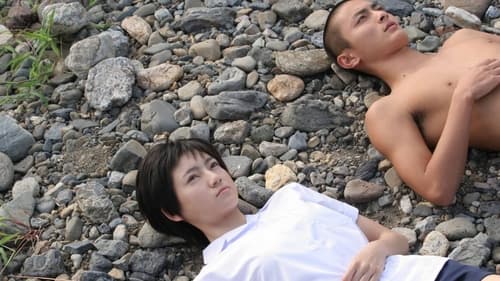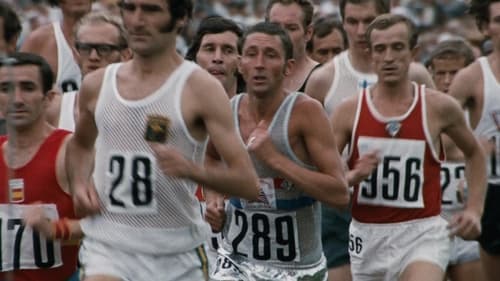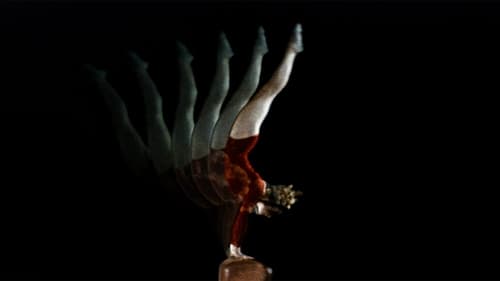Shuntaro Tanikawa
Nacimiento : 1931-12-15, Tokyo Prefecture, Japan

Self
Everyone in Japan knows his work, yet few recognize his face. Chris Mosdell, British expatriate, pop lyricist, poet and visual artist, during his 30-year residence in Tokyo has written chart-topping hits with some of Japan's most influential musicians and composers, penned lyrics to anime film scores, and run with the multimedia underground of that city's avant-garde. Ink Music: In The Land Of The Hundred-Tongued Lyricist is a 90-minute documentary film detailing those artistic relationships in the expansive career of artistic word-smith, Chris Mosdell. Shot in HD on-location in Tokyo and Fukui, Japan, and New York City, USA, the film highlights Mosdell's rise from obscure expatriate bohemian poet to renowned lyricist for Japan's biggest band ever, Yellow Magic Orchestra (YMO). The story is told through exclusive interviews. Tokyo itself also figures into the narrative as a major character, featuring copious clips of original footage from inside the city that inspires Mosdell's work.

Writer
Renowned Japanese poet Shuntaro Tanikawa teams with former "rock chick" Wakako Kaku to craft this pensive love story told almost entirely in still photographs. After steering a suicidal man away from the brink of despair, an astronomical observatory worker teaches him her favorite watchword, "Yah Chakya!" ("I, Seagull"). The phrase had once been spoken by the first female cosmonaut, and was the call-sign for the Soviet spacecraft Vostok. But for this woman, the word has taken on greater meaning; not only is it a greeting, but a secret handshake and a symbol of the universe as well. Upon learning the phrase, the man finally finds the strength to go on living.

Director
Renowned Japanese poet Shuntaro Tanikawa teams with former "rock chick" Wakako Kaku to craft this pensive love story told almost entirely in still photographs. After steering a suicidal man away from the brink of despair, an astronomical observatory worker teaches him her favorite watchword, "Yah Chakya!" ("I, Seagull"). The phrase had once been spoken by the first female cosmonaut, and was the call-sign for the Soviet spacecraft Vostok. But for this woman, the word has taken on greater meaning; not only is it a greeting, but a secret handshake and a symbol of the universe as well. Upon learning the phrase, the man finally finds the strength to go on living.

Set in Kyoto, 1990 Mizuho Oshima is a high school girl who hates her alcholic mom, adores her father, and has a crush on school swim team member Sho Sugimoto. Her father lives with another women, but Mizuho hopes to reunite her family. Her mother then takes up with an Amerian soldier named Charlie and they become an item. This crushes Mizuho's hopes of reuniting her family. Mizuho then seduces her mother's lover ...

A documentary capturing the recording process of singer Yano Akiko's 1992 cover album, Super Folk Song.

Self
This remarkable compilation follows an exchange of video letters that took place between Shuji Terayama and Shuntaro Tanikawa in the months immediately preceding Terayama's death. It can be thought of as a home video produced by two preeminent poets and inter-laid with highly abstract philosophizing, slightly aberrant behavior and occasionally flamboyant visuals.

Director of Photography
This remarkable compilation follows an exchange of video letters that took place between Shuji Terayama and Shuntaro Tanikawa in the months immediately preceding Terayama's death. It can be thought of as a home video produced by two preeminent poets and inter-laid with highly abstract philosophizing, slightly aberrant behavior and occasionally flamboyant visuals.

Editor
This remarkable compilation follows an exchange of video letters that took place between Shuji Terayama and Shuntaro Tanikawa in the months immediately preceding Terayama's death. It can be thought of as a home video produced by two preeminent poets and inter-laid with highly abstract philosophizing, slightly aberrant behavior and occasionally flamboyant visuals.

Writer
This remarkable compilation follows an exchange of video letters that took place between Shuji Terayama and Shuntaro Tanikawa in the months immediately preceding Terayama's death. It can be thought of as a home video produced by two preeminent poets and inter-laid with highly abstract philosophizing, slightly aberrant behavior and occasionally flamboyant visuals.

Director
This remarkable compilation follows an exchange of video letters that took place between Shuji Terayama and Shuntaro Tanikawa in the months immediately preceding Terayama's death. It can be thought of as a home video produced by two preeminent poets and inter-laid with highly abstract philosophizing, slightly aberrant behavior and occasionally flamboyant visuals.

Himself
In his darkened apartment the poet, translator, and lyricist discusses his work and his "art of being alone". In the words of Tanikawa: "If there is love, there is nothing more to say...".

Screenplay
This extraordinarily complex film is not only a send-up of every samurai film ever made, it is also an extrapolation of the value of life. The Yamatai, represented by Prince Susano-O and elderly advisor Sumuke, hire Yumihiko of Matsuro to hunt the phoenix so that Queen Himiko, sister of Susano-O can have eteranal life.

Writer
Ocho prestigiosos directores de todo el mundo dieron su visión de las Olimpiadas en este film de episodios repleto de hallazgos visuales: Milos Forman, Claude Lelouch, Arthur Penn, John Schlesinger, Kon Ichikawa, Mai Zetterling, Yuri Ozerov y Michel Pfleghar.

Screenplay
Follows the fluctuating fortunes of three ronin in feudal Japan who wander from castle to castle, selling their services to whichever lord will fill their rice bowls. Though they use the servants' entrance, they still feel themselves bound by the samurai code of Bushido; and this tension leads to tragedy.

Screenplay
A Japanese girl and a French boy make strides in overcoming the cultural barriers that prevent them from fully expressing the love they have for one another.

Writer
A documentary Ichikawa made for the 1970 Osaka Expo, originally made for projection on eight split panels.

Screenplay
Tokyo Olympiad director Kon Ichikawa documents the 50th anniversary of the Koshien games.

Screenplay
Aclamado documental dedicado a los Juegos Olímpicos que Japón hospedó en 1964. (FILMAFFINITY)

Poem
Corto de Kuri Youji de 1963.
















